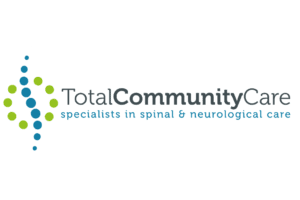Choosing an agency to provide your personal assistants
13 January 2020

This article was sponsored by Total Community Care.
We know that having the right care package in place can make a huge difference to your quality of life. With a great team of personal assistants (PAs), you can get out and about, work, enjoy time with your family, and get the most out of life.
This article can serve as a useful starting point when you’re choosing an agency (sometimes called a care provider) to provide your PAs. Read on to find a checklist of important things to consider, some warning signs to look out for, as well as a first-person account of a good and bad experience.
Checklist – selecting the right agency for you
Before you make any decisions, consider the following…
• Meet with two to three different PA agencies. This will help you identify the differences in the service they offer and the support you will receive.
• Speak to the Spinal Injuries Association to obtain a copy of their approved care provider list.
Here are some questions that you should put to any potential agency or care provider to find out if they are right for you:
o How will your care team be managed and what support you will receive? What happens if there are any issues with any of your PAs? Will your care manager help you to resolve any issues with your team quickly? Will you have a personal relationship with your care manager? Will there be a registered nurse available should you need clinical support?
o Can you meet your PAs before your care team is put together? Will they fit into your preferred lifestyle?
o What training in spinal cord injury will your PAs need to suit your needs? For example, are they trained in moving and handling, bowel and bladder management, skin care, autonomic dysreflexia, medication management, or tracheostomy care? Any good care provider should have PAs trained and will allow you to meet potential PAs in advance.
o What protocols do the agency have in place if one of your PAs is sick or on annual leave? A good agency will offer emergency PAs who are trained in spinal cord injury.
o Are your PAs being paid hourly in line with the national minimum wage? Or are they being paid a weekly amount? Will your PAs be paid to attend training?
Have you been informed that you might be entitled to a Personal Health Budget (PHB)? A PHB can give you more control over the PA agency or care provider you choose, instead of having to use an agency your local Continuing Healthcare Team suggest.
Warning signs or red flags to look out for when deciding on a PA agency
• Agencies who say they can put a team of PAs together very quickly or cheaply. Concerns: Will you be choosing your own staff? Will they receive proper training? What will staff be paid? Is this a quick fix or a viable long-term solution?
• Agencies who say they already have a bank of staff. Concerns: Does this allow you to select your own staff specific to your needs? If the staff are skilled and trained, why do they not currently have work? If they are “taken” from elsewhere, might they be “taken” from you in the future?

Having the right PA can help you live independently
Ben’s experience of a poor agency:
‘‘I was involved in a road traffic accident in 2006 and sustained a complete spinal cord injury at C4/5 level. Upon discharge from hospital in 2007, my care package had been set up to be jointly funded by CHC/local authority and a care provider was selected to cover all my care needs.
“Ten years later, my life was being ruined by appalling levels of care, with a total lack of empathy shown towards me. There was no settled team and different staff turned up every day – sometimes not at all! They were mainly agency staff who accepted these shifts, regardless of whether they were competent. Recruitment only found me one applicant in a year of searching.’’
Ben’s experience with a good agency:
‘‘From day one, the difference in approach was noticeable. They answered the phone promptly, listened and assured me the company would be able to support my care needs.
“The change in attitude made me realise how bad things had become and highlighted that there was a route out. The new agency put together a proposal, which I shared with my joint funders, and we all agreed to proceed.
“The handover process was much simpler than you could imagine. I worked closely with my care provider to set up a care plan and job advertisement. We had a successful response and interviewed eight potential candidates. I selected who I wanted on my team and gave notice to my previous agency. I also said that I wanted to take one of my previous staff members with me. This was a very smooth process.
“My team of staff completed the mandatory induction training course and I set up the first working rota.18 months on, I have a care team of three people working to my personalised rota to fit in with my life requirements. I haven’t seen any agency or unfamiliar staff. My monthly invoices are correct, and my staff get paid on time. Long may this continue to make my life hassle free.’’
(Ben, complete spinal cord injury at C4-5 level)
For more care provider testimonials, visit the Total Community Care website. We encourage all readers to undertake their own independent research, and Back Up is not responsible for any of the advice stated in this piece.



